Celebrating 25 Years of Milestones
It's CAPC's 25th anniversary, and we're excited to share significant milestones from over the years.
We appreciate you—our members, faculty, staff, and colleagues—for your hard work every day to help people living with serious illness, and their families. Thank you for helping us move the field forward, so more people can have access to quality, equitable health care. Please read along as we reflect on the past quarter-century.
The Early Years: 1999 - 2005
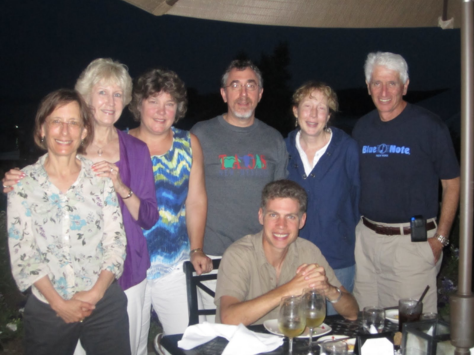
To start, did you know that CAPC was established with a generous grant from the Robert Wood Johnson Foundation, in order to improve the care of people living with serious illness, and their families? And that the first CAPC National Seminar was just a year later? The first six years were filled with significant accomplishments.
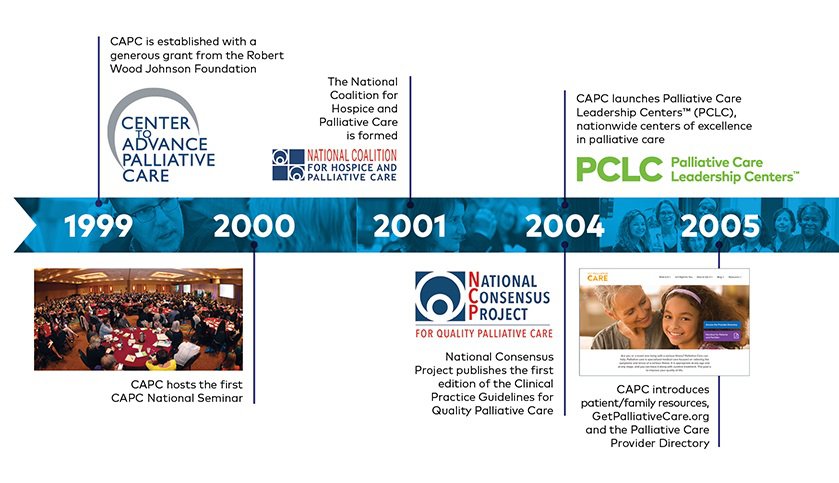
Continued Growth: 2008 - 2012
CAPC and the field continued to grow and succeed in the years to follow. Did you know that palliative care officially became a medical subspecialty for physicians and social workers in 2008? And the first State-by-State Report Card on access to hospital palliative care was published that same year (by CAPC and the National Palliative Care Research Center)? See below for a continued snippet of history.
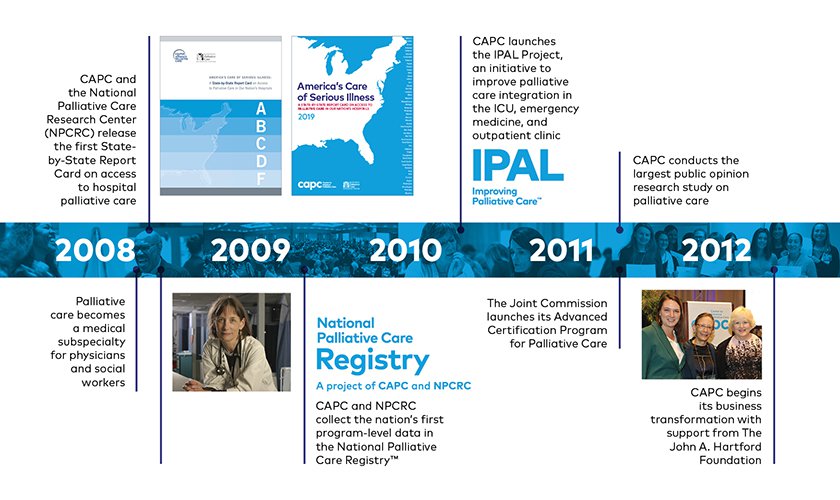
Scaling Up: 2015 - 2019
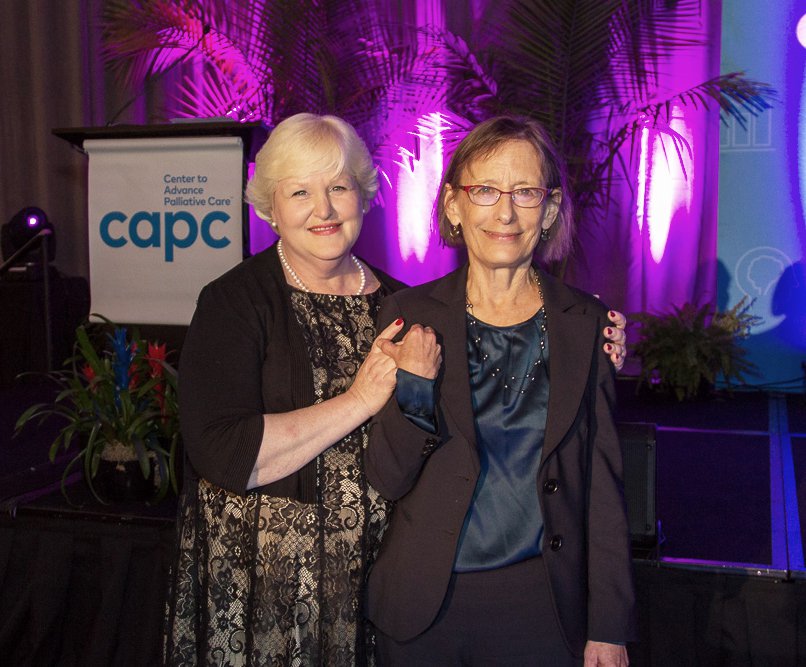
The next five years were a period of tremendous growth for CAPC. This included transforming into a member-based organization with support from The John A. Hartford Foundation, launching an online clinical training curriculum, announcing a partnership with the American Hospital Association (AHA), and launching our five-year national campaign on palliative care innovation, Project Tipping Point (the cornerstone being a national competition, the Tipping Point Challenge). See below for the full picture.
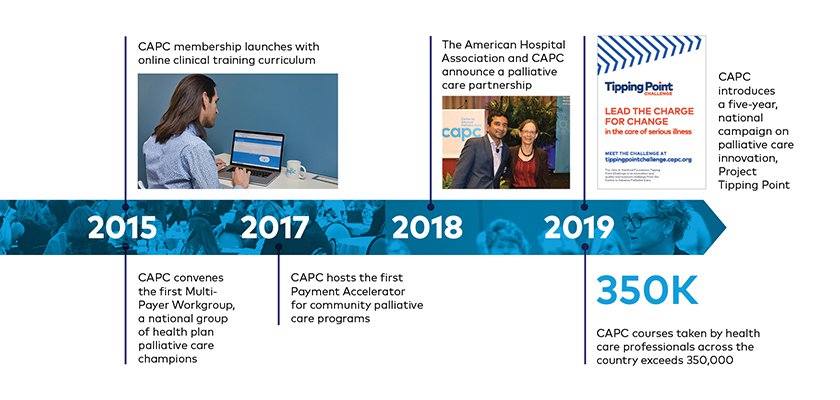
In the fall of 2019, CAPC reached a major milestone of over 350,000 course completions by 47,000 health care professionals across the United States—90% of whom reported that they were likely to change their clinical practice based on what they’ve learned.
At this point in time, more than 14,000 clinicians demonstrated their commitment to education in the care of patients with serious illness by earning CAPC Designation—and this group reports that Designation has made a difference. One survey found that 51% of clinicians strongly agree that they are confident in managing their patients’ pain after earning the CAPC Pain Management Designation (up from 9% prior to Designation). We understood from these numbers that there was a growing recognition of the importance of clinical education in core skills for the care of patients with serious illness, and anticipated that this trend will continue to grow over time.
Forging Ahead: 2020 - 2024
In response to the onset of the COVID-19 pandemic in March 2020, CAPC temporarily shifted gears to build tools, training, and technical assistance to support our colleagues caring for patients on the frontlines. We developed an award-winning, open-access COVID-19 Rapid Response Resources Hub, providing the frontline clinicians with the support they needed the moment they needed it. That year alone, we garnered more than 200,000 visits to the Hub and 150,000 resource downloads.
In 2021, Brynn Bowman, MPA, succeeded Diane E. Meier, MD as CAPC's Chief Executive Officer. Dr. Meier assumed the role of Direct Emerita and Strategic Medical Advisor. That was a busy year, as we also launched Project Equity, an ongoing initiative to improve health equity for people living with serious illness. In 2022, we published the CAPC Innovation Hub, which highlights select initiatives from the Tipping Point Challenge and Project Equity that are making breakthrough change in the care of serious illness. And, in 2023, we hit a major milestone: surpassing 1.1 million course completions by more than 130,000 health care professionals.
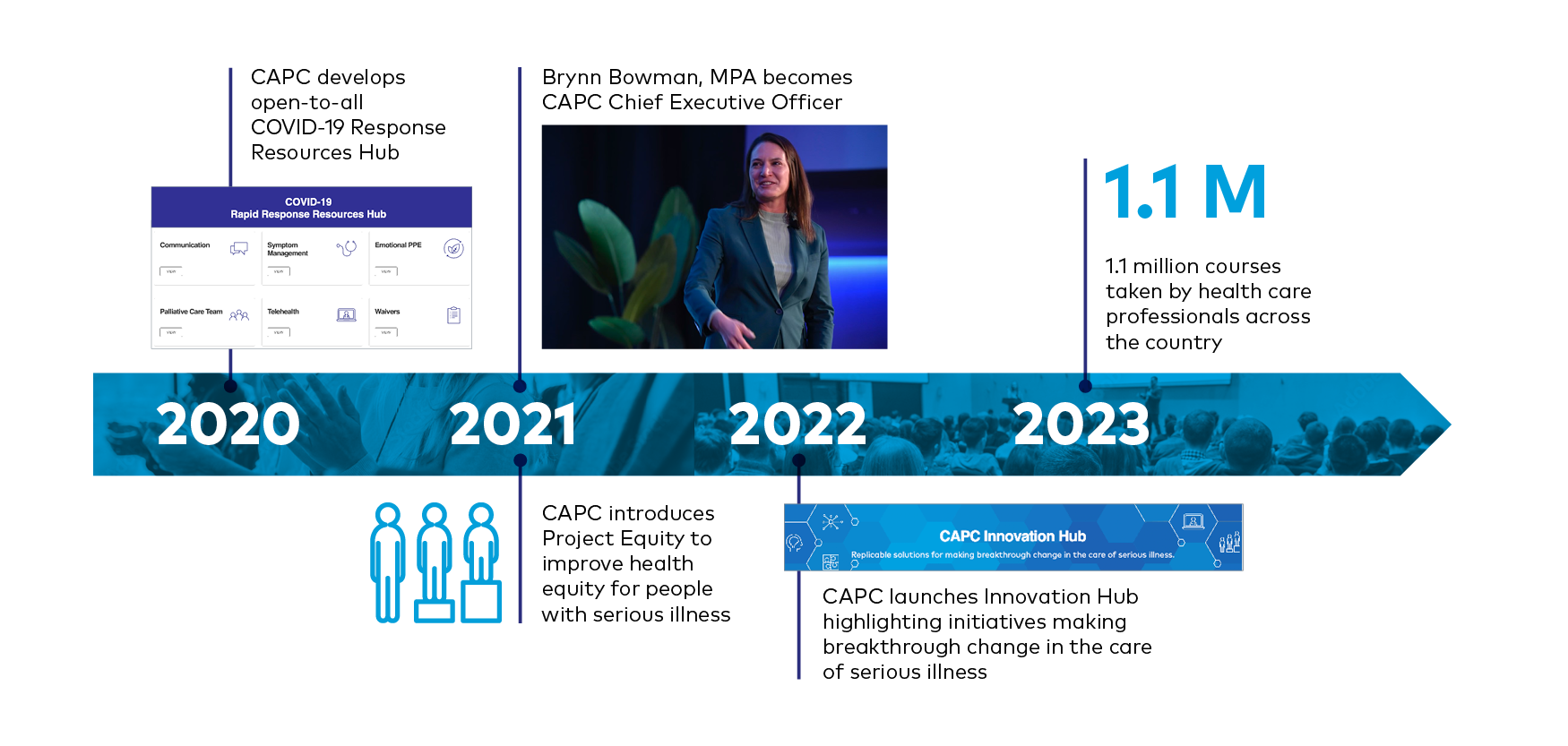
Thank you again for your work and for believing in CAPC and our mission over the past twenty-five years. We couldn't have reached this milestone without you. We look forward to continuing our work together to increase the availability of quality, equitable health care for people living with a serious illness, and the people who matter to them.

Be the first to read articles from the field (and beyond), access new resources, and register for upcoming events.
Subscribe